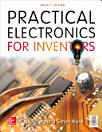Handbook of Granular Computing
ກ່ຽວກັບປຶ້ມ e-book ນີ້
The Handbook of Granular Computing offers a comprehensive reference source for the granular computing community, edited by and with contributions from leading experts in the field.
- Includes chapters covering the foundations of granular computing, interval analysis and fuzzy set theory; hybrid methods and models of granular computing; and applications and case studies.
- Divided into 5 sections: Preliminaries, Fundamentals, Methodology and Algorithms, Development of Hybrid Models and Applications and Case Studies.
- Presents the flow of ideas in a systematic, well-organized manner, starting with the concepts and motivation and proceeding to detailed design that materializes in specific algorithms, applications and case studies.
- Provides the reader with a self-contained reference that includes all pre-requisite knowledge, augmented with step-by-step explanations of more advanced concepts.
The Handbook of Granular Computing represents a significant and valuable contribution to the literature and will appeal to a broad audience including researchers, students and practitioners in the fields of Computational Intelligence, pattern recognition, fuzzy sets and neural networks, system modelling, operations research and bioinformatics.
ກ່ຽວກັບຜູ້ຂຽນ
Witold Pedrycz is a Professor and Canada Research Chair (CRC) in the Department of Electrical and Computer Engineering, University of Alberta, Edmonton, Canada. He is also with the Systems Research Institute of the Polish Academy of Sciences. He is actively pursuing research in Computational Intelligence, fuzzy modeling, knowledge discovery and data mining, fuzzy control including fuzzy controllers, pattern recognition, knowledge-based neural networks, relational computation, bioinformatics, and Software Engineering. He has published numerous papers in this area. He is also an author of 9 research monographs covering various aspects of Computational Intelligence and Software Engineering.
Andrzej Skowron holds a Ph.D. degree in Mathematical Foundations of Computer Science from the University of Warsaw in Poland, Doctor of Science (Habilitation) degree in Mathematical Foundations of Computer Science from the University of Warsaw in Poland. In 1991 he received the Scientific Title of Professor. Andrzej Skowron is the author and co-author of more than 280 scientific publications, 15 edited books and several special issues of international journals.
Vladik Kreinovich Department of Computer Science University of Texas. He received his M.S. in Mathematics and Computer Science from St. Petersburg University, Russia, in 1974, and Ph.D. from the Institute of Mathematics, Soviet Academy of Sciences, Published 6 books and more than 600 papers. Member of the editorial board of the international journal "Reliable Computing" (formerly, "Interval Computations"), and several other journals. Co-maintainer of the international website on interval computations.






